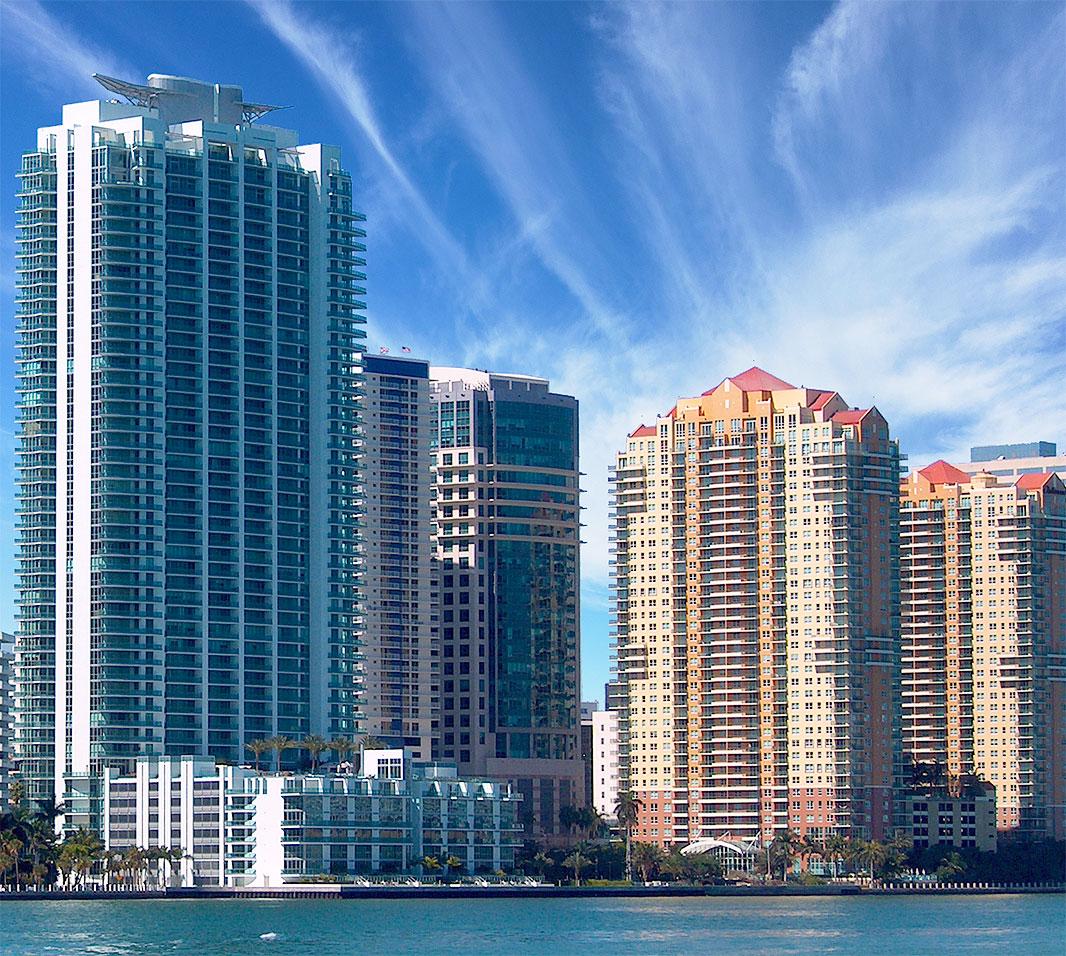ALL FLORIDA CONDOS TALLER THAN 3 STORIES ARE NOW SUBJECT TO NEW INSPECTION TIMELINES AND RESERVE FUNDING REQUIREMENTS
In response to the catastrophic collapse of the 136-unit Champlain Towers in Surfside Florida that killed 98 people, the Florida legislature unanimously approved Senate Bill 4D on May 26, 2022, establishing the Building Safety Act for Condominium and Cooperative Associations.
The Bill was subsequently signed into law by Governor Ron DeSantis, and became effective immediately. The law serves to impose substantial structural safety obligations and association budget requirements for condominiums. While these laws are intended to promote transparency, enhance safety and prevent future condominium disasters, these new obligations have the potential to create an immediate and long-term burden on Property Managers, Condo Boards, Residents, Developers and Condo Association Budgets.
WHO IS AFFECTED?
Prior to the new bill being signed into law, Miami-Dade and Broward County were the only two Florida counties that had condo recertification requirements. The new legislation is now state-wide and applies to all buildings with 3 or more stories.
Of the 1.5 million total Florida condominium units, 912,000 are older than 30-years old affecting more than 2 million condo residents in the State.
WHAT ARE THE NEW RULES?
Milestone Inspections: The previous structural certification requirement started at the 40 year mark for buildings. Now, buildings 30 years or older (occupied prior to 1992) will be required to have a licensed architect or engineer certify and attest to the “life safety and adequacy of the structural components of the building and, to the extent reasonably possible, determine the general structural condition of the building as it affects the safety of such building, including a determination of any necessary maintenance, repair, or replacement of any structural component of the building”.
The new milestone inspection requirements for buildings set forth that buildings occupied prior to July 1, 1992 (30 years), must have the recertification completed by December 31, 2024 and then be recertified every 10 years thereafter. For buildings within 3 miles of the coastline (a vast number of condo buildings in the State), the initial milestone inspection requirement is accelerated to the 25 year mark, or all buildings occupied prior to 1997 must have this recertification completed before 2025. The inspections must be completed by December 31st in the year in which the building turns 25 or 30 years old.
Milestone inspection reports must be submitted to building officials in the applicable county and to all building unit owners. It is a breach of an Officer or Director’s fiduciary duties if they willfully and knowingly fail to have a Milestone Structural Inspection performed when necessary. Recommended repairs set forth in the inspection must commence within one year of the report date or the enforcement agency may deem the building unsafe for human occupancy. Prospective purchasers in the building have a right to inspect a summary of the milestone inspection report as well.
Structural Integrity Reserve Studies: All Associations existing on or before July 1, 2022, must complete a Structural Integrity Reserve Study for each building that is 3 stories or more in height by December 31, 2024, and every 10 years thereafter. All other Associations must complete such Structural Integrity Reserve Study for buildings 3 stories or more in height every ten (10) years of their existence.
The reserve study must provide a recommended annual reserve amount that achieves the estimated replacement cost or deferred maintenance expense of each common area of the building by the end of its estimated remaining useful life. The Structural Integrity Reserve Study determines the remaining useful life and the money required to repair major structural components including the roof, foundation, waterproofing, load-bearing walls, plumbing, fire protection and electrical systems.
Until now, condo association boards were able to waive the funding requirement for major building repairs or reallocate reserves to other purposes. Starting in 2025, it will be mandatory that sufficient reserves are set aside for these inevitable repairs, giving property owners and associations about 2.5 years to figure out how to come up with the money.
Similar to inspection reports, all reserve studies must be provided to unit owners. A prospective purchaser of a unit in the building also has the right to inspect an association’s most recent Structural integrity Reserve Study. If an association has not completed the study, the prospective purchaser of the Unit is entitled to a statement from the association.
WHAT IS THE IMPACT TO OWNERS AND ASSOCIATIONS?
Unit Owners: Previously, there was no legal requirement to fund reserves for common area life-safety aspects of the building and the potential expense could be deferred indefinitely. Now, the Association must have adequate reserve funds on hand by December 31, 2024 to make such repairs by the end of the useful life of building common areas that will inevitably need replacement. These reserves must be maintained specifically for identified structural repairs and cannot be used for other purposes.
This will potentially lead to greater monthly association dues and assessments imposed on unit owners. This will have an impact of increased unit sales in certain buildings, compressing unit values, as well as increased rental demand for people that want to live in condos but not be responsible for on-going repairs and reserve requirements.
Association and Manager Liability: If an association fails to complete a Structural Integrity Reserve Study pursuant to the law, such failure is a breach of an officer’s and director’s fiduciary relationship to the unit owners which can constitute a statutory violation.
Developer Requirements: At project turnover to the unit owner-controlled association, the developer must provide a Milestone Inspection Report that attests to required maintenance, condition, useful life, and replacement costs for common area items including waterproofing and load-bearing walls.
The developer must also provide an initial Structural Integrity Reserve Study for all buildings 3 stories or more in height, and may not vote to use reserves for purposes other than those for which they were intended or vote to waive or reduce the funding of reserves.
While condo associations have until 2025, they will need to start preparing immediately to contract the engineers, architects and reserve study experts to perform the inspections and issue the required reports. In addition, as Associations are no longer allowed to waive the funding of reserves, they will need to determine how to finance these inevitable repairs.





